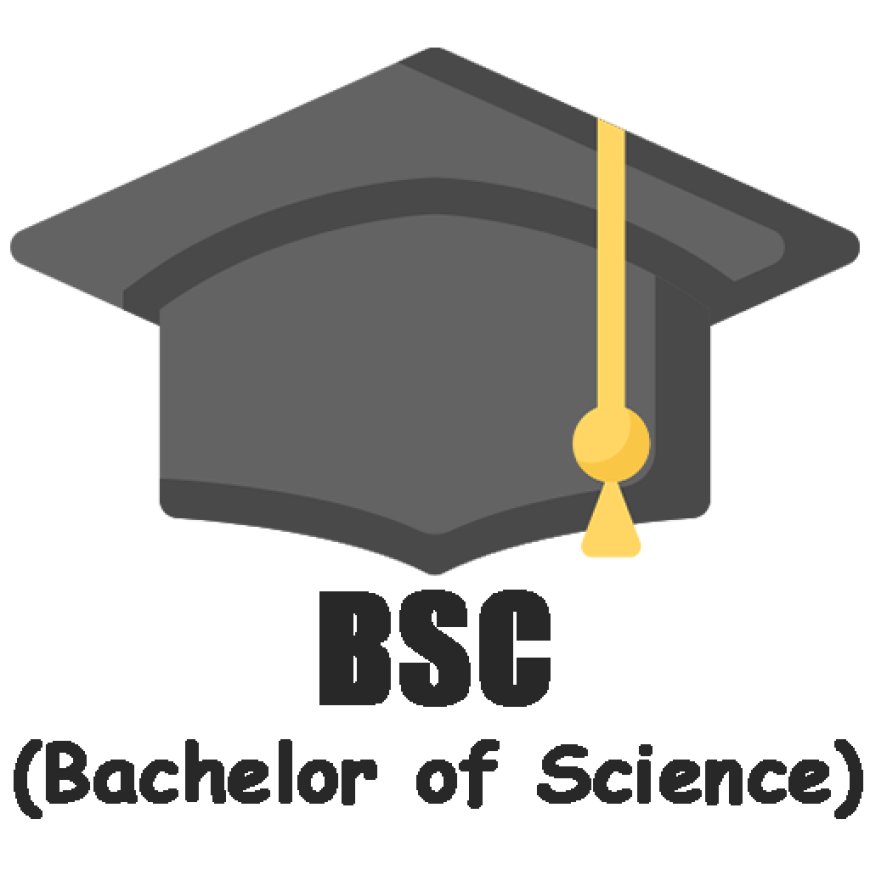How a BSc Degree Can Kickstart Your Journey
Discover how a BSc degree builds a strong foundation, develops essential skills, and opens doors to diverse career opportunities.

When you think about career-building, what comes to mind? A great starting point. A solid foundation. A launchpad for bigger things. For many, a Bachelor of Science degree—commonly known as BSc—offers just that.
It’s not just about earning a degree. It’s about equipping yourself with skills, knowledge, and opportunities that can shape your professional path. Whether you’re passionate about biology, physics, or computer science, a BSc degree can open doors you never thought possible.
And the full form of BSc? Bachelor of Science. But it’s much more than just a name. Let’s dive deeper into why this degree is worth considering.
Building a Strong Foundation
Imagine building a house. The foundation matters most, right? That’s what a BSc degree offers—a strong base to build your career. It introduces you to core concepts in your chosen field, whether it’s mathematics, chemistry, or environmental science.
Take physics, for example. A BSc in Physics doesn’t just teach you about motion or energy. It equips you with analytical thinking and problem-solving skills—skills that are transferable to countless professions.
And then there’s biology. A BSc in Biology can pave the way for careers in healthcare, research, or even environmental conservation. It’s not just about understanding cells and organisms; it’s about learning to question, analyze, and innovate.
Variety Is the Spice of a BSc
The beauty of a BSc degree? Flexibility. You can tailor your education to match your interests. Love numbers? Choose mathematics or statistics. Fascinated by the natural world? Opt for zoology or botany. Into tech? Computer science is your playground.
This variety doesn’t limit you to one career path. For example, a BSc in Computer Science can lead to roles in software development, cybersecurity, or artificial intelligence.
Think of it like a buffet. You get to pick what you love, dive deep, and become an expert. And with the full form of BSc being a Bachelor of Science, it’s clear the emphasis is on specialization and depth.
Skill Development
A degree is only as good as the skills it helps you develop. And a BSc degree? It’s a powerhouse for skill-building.
Here’s what you’ll gain:
- Analytical Thinking: Learn to approach problems methodically.
- Research Skills: Discover how to ask the right questions and find the answers.
- Technical Expertise: Master the tools and technologies relevant to your field.
- Communication: Learn to present ideas clearly and confidently.
These aren’t just skills for scientists or researchers. They’re essential in almost every profession today.
Real-World Applications
The good news? A BSc isn’t just theoretical. It’s packed with real-world relevance.
Take environmental science. A BSc in this field might have you conducting fieldwork, analyzing soil samples, or studying climate change. You’re not just learning; you’re applying your knowledge to solve pressing global issues.
Similarly, a BSc in Data Science can involve crunching numbers, identifying trends, and predicting future outcomes—all valuable in industries like finance, healthcare, and marketing.
Career Opportunities
Here’s the big question: What can you do with a BSc degree? The answer? Almost anything.
Let’s break it down:
- Healthcare: From lab technicians to medical researchers, opportunities abound.
- Technology: Software developers, data analysts, and IT specialists all benefit from a science background.
- Education: Teach the next generation or contribute to academic research.
- Business: Science graduates are increasingly finding roles in management, operations, and consulting.
And it doesn’t stop there. Many BSc graduates pursue higher education, like an MSc or a PhD, to delve even deeper into their fields.
A Personal Anecdote
Let me share a quick story. My friend Divya chose a BSc in Zoology because she was fascinated by wildlife. Three years later, she’s working with a conservation NGO, studying endangered species. Her work isn’t just a job—it’s a passion.
That’s the power of a BSc degree. It doesn’t just teach you science. It helps you find your purpose.
The BSc Advantage
What makes a BSc degree stand out? Practical learning. While many degrees focus solely on theory, a BSc combines classroom education with hands-on experience.
Laboratory work. Field trips. Internships. These are all integral parts of the program. They don’t just prepare you for exams; they prepare you for life.
And when it comes to the full form of BSc, it’s a reminder of what you’re committing to—a Bachelor of Science. A journey of discovery and growth.
Is a BSc Right for You?
Here’s the thing: A BSc isn’t for everyone. It’s for those who are curious. Those who love asking why and figuring out how.
If you enjoy problem-solving, exploring the unknown, or working with data, a BSc could be your perfect match. And the good news? It’s not just for straight-A students. With determination and a passion for learning, anyone can succeed.
Conclusion
Choosing a degree is a big decision. But if you’re looking for a program that combines academic rigor with real-world relevance, a BSc degree might be the answer.
It’s more than just earning a title. It’s about preparing for the challenges of tomorrow. Whether you dream of being a scientist, a tech expert, or a healthcare professional, a BSc can set you on the right path.
And the full form of BSc? It’s not just Bachelor of Science. It’s your first step toward a brighter future.
FAQs About the Full Form of BSc and More
1. What is the full form of BSc?
The full form of BSc is Bachelor of Science. It’s an undergraduate degree focusing on science, technology, and related fields.
2. How long does it take to complete a BSc degree?
Typically, a BSc program lasts three to four years, depending on the country and university.
3. Can I pursue a BSc if I’m not strong in math?
Absolutely. While some BSc courses require math, others, like biology or environmental science, don’t have heavy math requirements.
4. What careers can I explore with a BSc?
A BSc opens doors to diverse fields like healthcare, technology, education, research, and business.
5. Is a BSc better than a BA?
It depends on your interests. If you’re passionate about science and technology, a BSc is a better fit. But if you prefer arts or humanities, a BA might be the way to go.
What's Your Reaction?





















